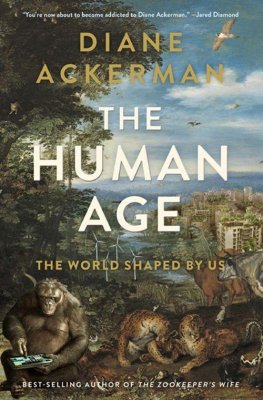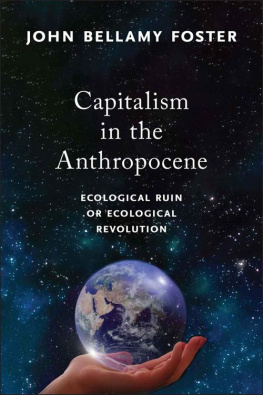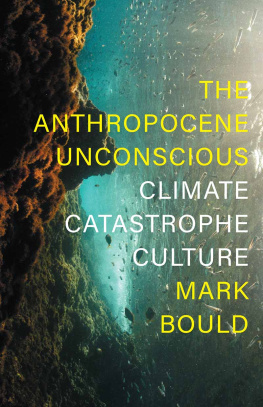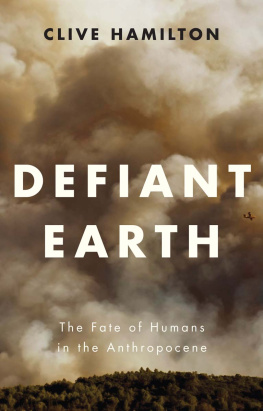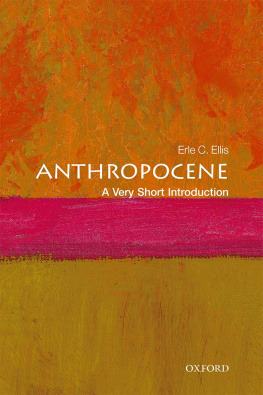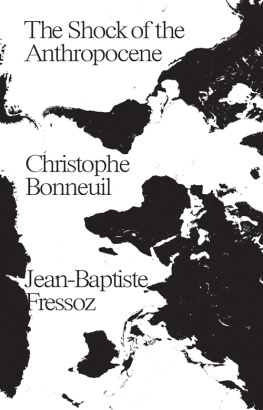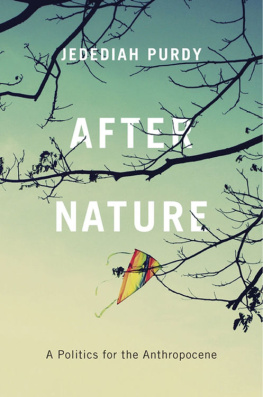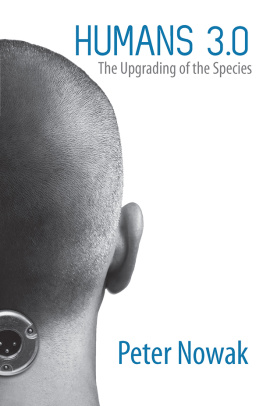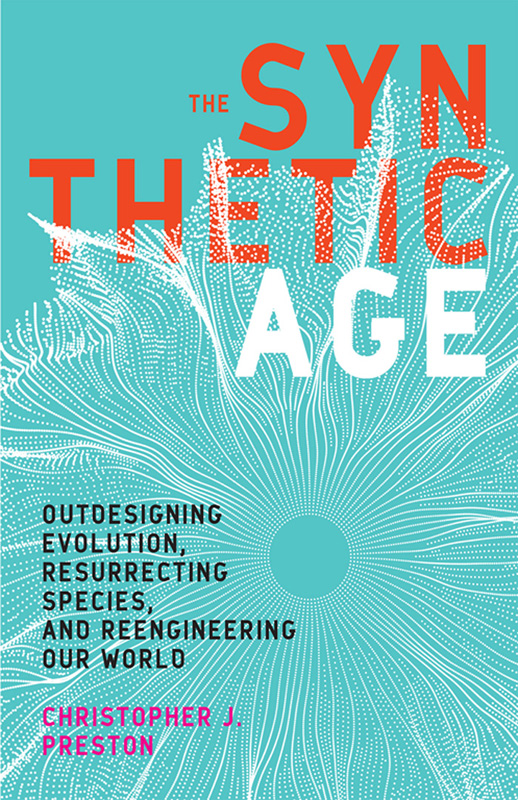Table of Contents
Guide
The Synthetic Age
Outdesigning Evolution, Resurrecting Species, and Reengineering Our World
Christopher J. Preston
The MIT Press
Cambridge, Massachusetts
London, England
2018 Christopher J. Preston
All rights reserved. No part of this book may be reproduced in any form by any electronic or mechanical means (including photocopying, recording, or information storage and retrieval) without permission in writing from the publisher.
This book was set in Stone Serif by Jen Jackowitz. Printed and bound in the United States of America.
Library of Congress Cataloging-in-Publication Data
Names: Preston, Christopher J. (Christopher James), 1968- author.
Title: The synthetic age : outdesigning evolution, resurrecting species, and
reengineering our world / Christopher J. Preston.
Description: Cambridge, MA : MIT Press, [2018] | Includes bibliographical
references and index.
Identifiers: LCCN 2017029324 | ISBN 9780262037617 (hardcover : alk. paper)
eISBN 9780262345286
Subjects: LCSH: TechnologySocial aspects. | Technological innovations.
Classification: LCC T14.5 .P75 2018 | DDC 303.48/3dc23 LC record available at https://lccn.loc.gov/2017029324
ePub Version 1.0
For Toby, Jessica, and Alice whose lives will be shaped by the Synthetic Age
Democracy is not just the stripping away of old hierarchies; it means making the world together.
Jedediah Purdy, After Nature
Acknowledgments
My wife, my parents, my brother, and my sister are tireless cheerleaders for who I am and for what I do. I appreciate from the core of my being all that they have given me over many years.
A number of friends, colleagues, and acquaintances have played roles in keeping this manuscript buoyant at various points on its voyage. Among others, I am grateful to Fern Wickson, Svein Anders Lie, Geoff Gilbert, Jake Hanson, Patrick Kelly, Armond Duwell, Neal Anderson, Jennifer Beck, Jack Rowan, Beth Clevenger, Ted Catton, and Bradley Layton for their supply of both information and encouragement.
Finally, my agent Kevin O'Connor was of more assistance than I could possibly have deserved in my efforts to navigate the literary world. Provocative, hard-working, informative, funny, and dedicated, it is because of him that you now hold this book in your hands. Kevin proved himself to be, without doubt, one of the most capable guides a writer could hope for.
Introduction
Whoever you area scientist or painter, a farmer or philosopher, a young mother or wrinkled grandparenta radical shift in how you look at the world typically begins with a single moment of awakening. In one instant, something happens that crystallizes a whole set of thoughts and observations into a shocking new realization. Such a moment happened for me not long ago off a remote Alaskan coastline in the company of a grizzled fishing boat captain named Walt.
in my hand, watching a quarter mile of fishing line emerge from the sea.
You ready? Walt demanded. When a fish comes up, you need to be quick.
I nodded and shuffled my feet to make sure they were gripping the deck firmly, hoping not to screw up my first attempt at landing an Alaskan halibut destined for the commercial market.
You don't want to lean over too far, Walt added, or one of the big suckers will pull you in. They fight like hell when they come to the surface.
I signaled my understanding and tightened my fingers on the boat's rail. The halibut in the waters off Alaska can weigh twice as much as a man and can cause havoc on a small boat. Some fishermen put a bullet in the halibut's brain before hauling it aboard to avoid risking injury when the fish starts thrashing around on deck.
With my heart thudding in my chest, I looked down to where the dripping line was emerging from the sea, just in time to see a huge oval shape sweep into view.
Nine hours after the silhouette of that first fish appeared alongside our boat, we pulled into a remote cove in the shadow of Mount Fairweather. Below deck, the fish hold was packed with a thousand pounds of our quarry, their cleaned-out bellies stuffed full of shaved ice. As we glided into the cove, a brown bear on the beach looked up from a salmon gripped between two giant paws and then quickly returned to his meal. After the anchor was set and the captain killed the noisy diesel engine, only the water lapping against our hull and a few shrieks from passing gulls broke the heavy liquid silence.
It was nearly midnight, and I was exhausted from working all afternoon with the heavy fish. But in the northern twilight, I sat for a long moment on the back deck in my sweaty fishing gear and took in the mountains, the glaciers, and the fading outline of the bear on the beach. Mentally and physically worn down by the work, a sad realization washed over me: I finally grasped what it meant to say that humans have utterly transformed the earth.
Besides our boat, there were no signs of people in any direction. These beautifully sculpted fish had been taken from some of the most remote coastal waters in North America, waters teeming with species in numbers found in few other places. If there was anywhere left on earth where some semblance of pristine nature could still be found, it would be in a place like this.
Yet the glistening white flesh of the halibut we had pulled from the ocean, cleaned meticulously with our knives, and stacked in ice below decks was not pristine. It contained enough mercury spewed from Chinese coal-fired power plants four thousand miles away that U.S. Food and Drug Administration numbers suggested a safe consumption limit of only three small portions a month. Pregnant women and small children should eat even less.
As someone whose regular job involved teaching college students about environmental issues, I already knew in the abstract that there were no longer any places left on earth untouched by industrial pollution. Although this information had lodged somewhere in my brain, I clearly had not fully processed it. Because now, for the first time, I really felt it. Human impact on the planet means more than just a sequence of numbers pointing toward sagging snow packs, melting glaciers, and shrinking species counts. It means a landscape that can no longer shrug off the consequences of human industry, no matter how far from the manufacturing and urban centers you go. The human stamp on the world is total. Nor are these impacts trivial. Even in far-away places, this human imprint can affect the safety of the food we put into our mouths.
In the months since I returned from that fishing trip, I have wondered what this legacy means for the times ahead. The question this book seeks to investigate is Where are we heading from here?
Until recently, virtually all of the notable pieces of human history have taken place in an epoch known as the Holocene. Derived from the Greek terms holos and kainos, Holocene literally means entirely recent. The planet has occupied the entirely recent epoch for a geologically brief twelve thousand years or so.
Technically speaking, the Anthropocene is a geological term, one thatif you want to speak really technicallydoes not actually refer to anything yet. It is the new name under consideration for the geological epoch that will replace the Holocene. A growing cohort of commentators have suggested that the coming epoch should be named in honor of the species whose signature is now detectable on every square inch of soil and in every drop of ocean water.


